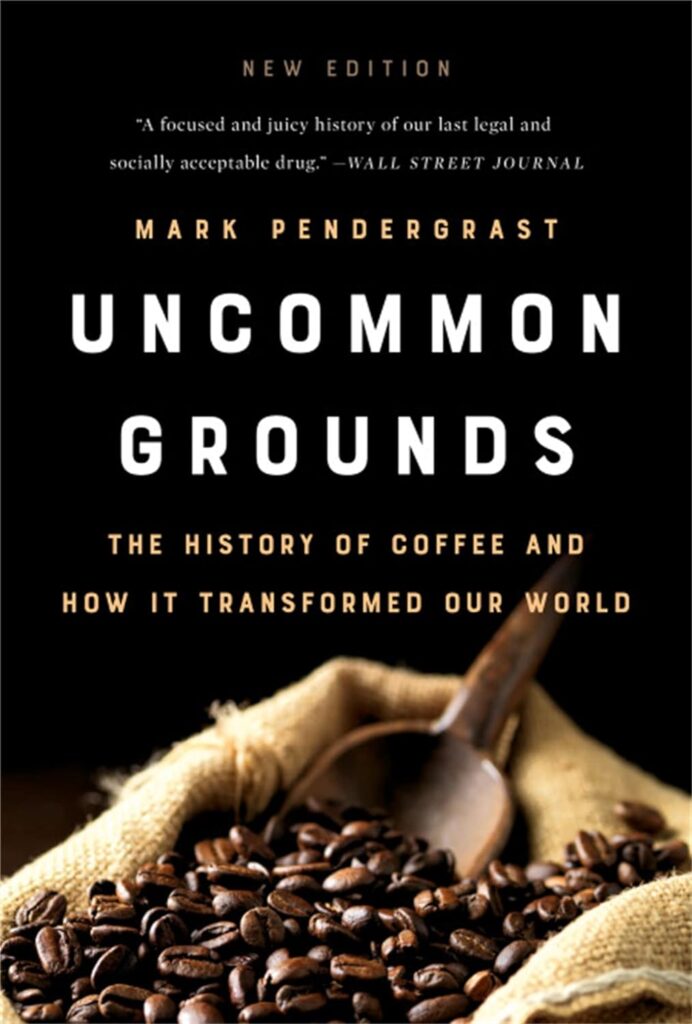Mark Pendergrast’s Uncommon Grounds: The History of Coffee and How It Transformed Our World, published in 2019, isn’t just a chronicle of a beverage; it’s a sweeping epic that traces coffee’s journey from obscure Ethiopian origins to global phenomenon. Pendergrast, a former journalist and historian with a knack for meticulous research, doesn’t just present facts; he crafts a narrative that reveals the complex social, economic, and political forces shaped by this seemingly simple bean. This revised and updated edition delves deeper into the contemporary coffee scene, making it especially relevant today as coffee culture continues to evolve.
Content Overview
Uncommon Grounds meticulously charts the trajectory of coffee, beginning with its mythical discovery in Ethiopia. Pendergrast then navigates through the rise of coffee houses in the Arab world, the spread of coffee across Europe, and the subsequent colonial exploitation of coffee cultivation in the Americas and beyond. He meticulously outlines how coffee fueled global trade and shaped political landscapes, all while offering a detailed look at the varying cultural practices around coffee consumption. The book is structured chronologically, each chapter building on the previous one, which allows readers to grasp the gradual and impactful nature of coffee’s influence. The book appeals to anyone interested in the history of globalization, economics, and of course, coffee lovers. You can find a copy here https://www.amazon.com/s?k=9781541699380&tag=verified0ea-20
Practical Application
Beyond its historical narrative, Uncommon Grounds provides practical insights into the contemporary coffee industry. Pendergrast explores fair trade initiatives, the specialty coffee movement, and the environmental challenges associated with coffee production. He doesn’t shy away from exposing the exploitative practices that have often plagued the coffee industry, urging readers to consider the ethical implications of their daily cup. Case studies, such as the rise of cooperatives and farmer-led initiatives, demonstrate how positive change is possible. The book encourages readers to be more mindful consumers, making informed choices that support sustainable and equitable practices. This is the kind of read that makes you think twice before buying your next latte, and consider the journey behind each bean.
Research & Authority
Pendergrast’s authority shines through his comprehensive research. He draws from an impressive array of sources, including primary documents, scholarly articles, and interviews with industry experts. The book is not only a well-written narrative but also a meticulously documented work of historical scholarship. Pendergrast skillfully synthesizes vast amounts of information into a coherent and engaging narrative. His approach is balanced, presenting multiple viewpoints and avoiding overly simplistic conclusions. The depth of his research adds significant credibility to his analysis, offering readers a well-rounded understanding of coffee’s impact. You can find a copy here https://www.amazon.com/s?k=9781541699380&tag=verified0ea-20
Writing Style & Narrative Techniques
Pendergrast’s writing is accessible and engaging, avoiding academic jargon while maintaining a high level of intellectual rigor. He uses a straightforward and clear style, which makes complex historical information easy to digest. The pacing is well-balanced, alternating between broad historical overviews and detailed accounts of specific events or individuals. He skillfully weaves in anecdotal stories and personal accounts, adding a human dimension to the historical narrative. The book’s readability is a significant strength, making it enjoyable for both casual readers and serious scholars. His voice is informative yet personable, making it feel like a fascinating conversation about coffee’s history.
I remember first reading about the impact of coffee on the slave trade and was astonished. It’s not something I had ever considered, and it really struck me how something so seemingly harmless as my daily morning ritual has deep roots in some dark places. It was a stark reminder that our daily choices, no matter how small, have far-reaching consequences. This book helped to connect those dots in a powerful and personal way. You can find a copy here https://www.amazon.com/s?k=9781541699380&tag=verified0ea-20
Conclusion
Uncommon Grounds is more than just a history of coffee; it’s a lens through which we can understand the intricate connections between trade, culture, and politics. Pendergrast’s work demonstrates how a single agricultural commodity can have profound global implications. This book matters because it invites readers to reconsider their relationship with everyday products and the larger systems they are embedded in. It leaves a lasting impact by promoting a more conscious and informed approach to consumption. This is not just a book for coffee aficionados, but for anyone curious about the forces that have shaped our world. This book will challenge your perspectives and add depth to your daily ritual. You can find a copy here https://www.amazon.com/s?k=9781541699380&tag=verified0ea-20
I would highly recommend this book to anyone interested in history, economics, and global culture. It’s a compelling and informative read that will enrich your understanding of a seemingly ordinary beverage. For those who enjoyed books like Salt: A World History by Mark Kurlansky or Sapiens: A Brief History of Humankind by Yuval Noah Harari, Uncommon Grounds offers a similar blend of historical insight and engaging storytelling.

